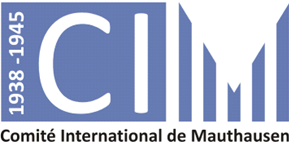
Amicale des Anciens Prisonniers Politiques Luxembourgeois du camp de concentration de Mauthausen et des camps qui en dépendaient
Luxembourgers in the Mauthausen camps
The Luxembourg Book of the camps contains a list of 176 names of Luxembourgers who were deported to the Mauthausen concentration camp (KLM) or to some 50 of its annexed camps, such as Gusen, Melk, Ebensee, Schloss Hartheim, Loibl Pass, Wels, Wien-Florisdorf II /Schwechat. As far as we know, 62 Luxembourg prisoners died in the various death camps or very soon after liberation. The four priests, Théophile Becker, Jean-Baptiste Esch, Joseph Stoffels and Nicolas Wampach, who were transferred from the Dachau camp to the euthanasia centre Schloß Hartheim to be gassed, are not included in this list of 176 because they were "natives" of the Dachau camp. Among these 62 dead are also the three Luxembourgers Hamber Walter, Lefort Emile and Lhermitte René, shot during the "death march" from Floridsdorf to the Steyer camp.
The Amicale luxembourgeoise de Mauthausen was informally founded after the Second World War. The former deportees had very quickly understood the important role of the visits to the camps, first by regularly going with former deportees, their families and friends to the ceremonies of the liberation of the camps, then by organising educational trips for young people from 1968 on.
In 1968, the Amicale published a 426-page book Lëtzebuerger zu Mauthausen with some 60 testimonies of Luxembourg deportees. The sketches in the book were made on the spot during the detention by Edmond Goergen, former Mauthausen deportee.
Ceremony of 7 May 2017 in front of the Luxembourg monument
In 1968, The Amicale erected a marble monument in the form of the Luxembourg "shoe" in honour of the Luxembourgers deported to Mauthausen (monument created by the artist Constant Reuter)
In order to guarantee the continuity of its action in spite of the progressive disappearance of the witnesses of the first generation, the Amicale decided in 1987 to admit to its committee daughters and sons of former deportees, and since two years also grandchildren of former deportees. It also admits as members persons who are experts in the history of the concentration camps, for their knowledge of the events and facts of society which led to the Second World War and/or for their commitment to the defence of human rights and democratic values.
The Amicale has recently updated its statutes and is registered with the Registre de Commerce et des Sociétés. It defines its missions as follows
To unite all the survivors of Mauthausen, without distinction of race, nationality, ideology or religion;
To strengthen the bonds of friendship and help between the families of the survivors and the disappeared
To organise periodic days of remembrance and pilgrimages to Mauthausen and its annexed camps for its members and friends and for young people living in the country, in order to perpetuate the memory of all those who died for freedom or who were incarcerated in a concentration camp for having actively opposed the Nazis
To keep alive the sense of resistance and democratic values and civic sense 3 and to oppose any revival of neo-Nazism wherever it appears and in whatever form
To inform the youth of Luxembourg and elsewhere about the resistance against the Nazi oppressor during the 1939 - 1945 war and about life in the concentration camps
To work in close co-operation with the Mauthausen associations of other countries and particularly with the International Mauthausen Committee.
May 2022, a group of pupils from the LGL of Esch/Alzette
The current Committee of the Amicale de Mauthausen:
President : Gianni Mersch
Vice-president : Paul Hansen
Treasurer : Pol Weyer
Secretary: Guy Dockendorf
Members: Nico Berchem, Luc Dockendorf, Marc Hammelmann, Emile Hansen, Joëlle Hayum, Roland Hayum, Roland Mersch
Educational trips with young people since April 1968
Since April 1968, some 1,500 young people from secondary schools, accompanied at first by former deportees, and since their disappearance by their sons and daughters, witnesses of the 2nd and 3rd generations, but also by their teachers, have spent a week visiting the death camps of Mauthausen, Ebensee, Gusen, Melk and Schloss Hartheim.
These "youth pilgrimages", set up and led by the secretary of the Amicale, Metty Dockendorf, have taken place almost every year since 1968. Former deportees such as Jos Hammelmann, Paul Mersch, Eugène Goerens and Jean Majerus often accompanied the young people. Since the death of Metty Dockendorf, the torch has been taken up by Camille Mersch, Guy Dockendorf, Nico Berchem, Paul Hansen and Gianni Mersch.
The aim of these study tours - whose motto is "Erënneren a Verstoen" (Remebering to understand) is not to perpetuate the hatred of a disappeared enemy, but to try to remember what happened, in order to better show how far racism and extreme rightwing regimes can lead.


